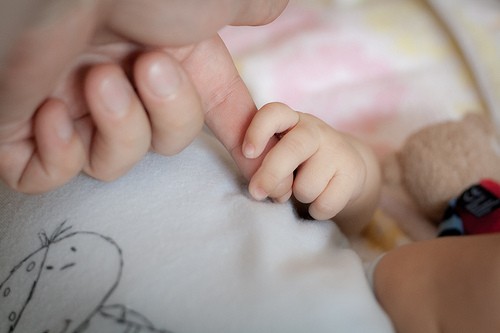
A hormone treatment can help prevent brain injuries associated with premature birth, shows latest research.
According to a study published in JAMA, preterm babies who received high doses of hormone erythropoietin (EPO) within 42 hours of birth showed fewer brain abnormalities than new-borns who did not receive the therapy.
A full pregnancy consists of 40 weeks. Babies born before 37 weeks of gestational age are considered to be premature. Premature birth is known to increase the risk of cerebral palsy (abnormal development of the brain), breathing, respiratory, feeding, or digestive problems and intellectual disabilities in children.
The Switzerland-based research mainly focused on encephalopathy in premature babies. Encephalopathy is a term generally used to describe abnormal function and structure of the brain, caused by viral infection or toxins in the body. The medical condition can lead to neurodevelopmental delays in children.
The study looked at 495 premature babies born between 26 weeks and 31 weeks of gestation, from 2005 to 2012. About 256 babies received recombinant human erythropoietin via IV therapy thrice within two days of birth. The first dose was given in the first three hours, second between 12 and 18 hours and the last one about 36 to 42 hours after they entered the world. Rest of the babies (239) were given placebo during the same period. Researchers used MRI scan to monitor 165 babies who received either erythropoietin (77) or placebo (88).
The hormone therapy reduced white matter injury (22 percent), white matter signal intensity (3 percent), periventricular white matter loss (18 percent), and gray matter injury (7 percent) compared to placebo treatment (36, 11, 33 and 19 percent respectively).
"We found that the brains of treated children had significantly fewer lesions than those in the control group who received a placebo," co-author of the study Dr Russia Ha-Vinh Leuchter, said in a University news release. "This shows for the first time the beneficial effect of this hormone on the brain of premature infants."
Researchers have revealed their plans to conduct more tests to analyse neurocognitive development in the children from two to five years. "These tests should confirm the effect of EPO treatment on neurodevelopmental disorders that often have very premature infants during their childhood," Petra Susan Hüppi, professor at the Faculty of Medicine at the University of Geneva, said.
The study results bring hopes as around 3.6 million babies are born prematurely in India, i.e. about 23.6 percent of the 15 million pre-term births around the world.

















